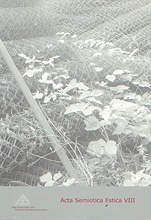Subjekti konstrueerimine järelevalvesüsteemides
The construction of the subject in surveillance systems
Author(s): Ott PuumeisterSubject(s): Semiotics / Semiology
Published by: Eesti Semiootika Selts
Keywords: surveillance; power relations; subject position; identity; autocommunication; järelevalve; võimusuhted; subjekt; identiteet; autokommunikatsioon
Summary/Abstract: The article deals with surveillance systems and their relations to the subject, it focuses on power relations constituted in surveillance systems. Attention is also paid at how these systems construct the identities of subjects and groups. The main theoretical foundation is Michel Foucault's approach to discourse and power; as an example of surveillance systems, the closed and whole structure of school environment is viewed with the help of Foucault's concepts 'panopticon' and 'heterotopy. Juri Lotman's concept of autocommunication helps us to deal with the problem of subjects' autonomy in surveillance systems. To theoretically approach the more extensive surveillance functioning in society, the concept of surveillant assemblage is used. It describes surveillance systems that are closed only temporarily and are actualized through power relations which are not organized around a fixed centre and do not have stable boundaries. Giorgio Agamben’s concept 'biopolitics' and, again, Foucault's concept 'governmentality' support the understanding of management and governing practices of subjects and groups. Building on these foundations, the article studies the surveillance systems' power of constructing the subject and how different system organizations construct different subject positions. To help the understanding of how the differently organized systems are capable of cooperating, the examples of surveillance in Laagri school as well as in the schools of Great Britain are used. Since there does not exist any unified theoretical framework for considering surveillance systems, this article – by uniting different concepts and approaches – tries to give a humble contribution to an understanding of a modern social problem.
Journal: Acta Semiotica Estica
- Issue Year: 2011
- Issue No: 8
- Page Range: 051-073
- Page Count: 23
- Language: Estonian

